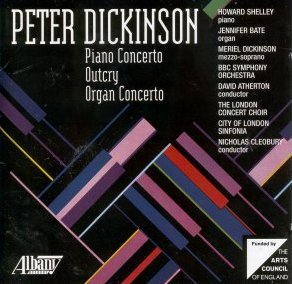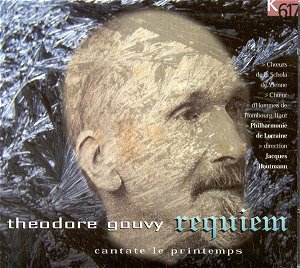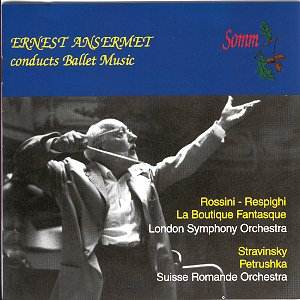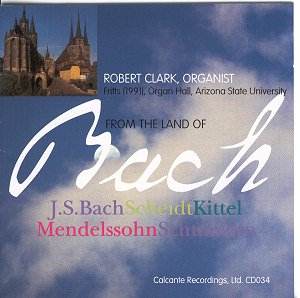 Composer: Peter Dickinson
Composer: Peter Dickinson
Works: Rags, Blues and Parodies; Song Cycles; Concertos for Piano and Organ; Outcry
Performers: Meriel Dickinson (mezzo), Peter Dickinson (piano), Howard Shelley (piano), Jennifer Bate (organ), London Concert Choir, City of London Sinfonia, Nicholas Cleobury
Recording: Various live performances from 1985-1988
Label: Albany Records
Peter Dickinson, born in 1934, emerges as a significant yet often underappreciated voice in contemporary British music. His works, characterized by a vibrant interplay of tradition and innovation, draw upon a diverse palette that includes jazz, ragtime, and classical idioms. The three discs under review provide a compelling overview of Dickinson’s artistic breadth, showcasing his penchant for humor, poignancy, and a distinctive approach to text setting that melds the poetic with the musical.
The first disc, Rags, Blues and Parodies, exemplifies Dickinson’s ability to traverse emotional landscapes seamlessly. The cycle “Stevie’s Tunes,” inspired by the poetry of Stevie Smith, demonstrates an engaging interplay of wit and sentiment. In “O Happy Dogs of England,” for instance, Dickinson employs a light-hearted melodic line that contrasts sharply with the gravitas found in “In Canaan’s Happy-Land,” where the music swells into operatic heights, reflecting the duality of human experience. The recording quality captures the nuances of Dickinson’s piano playing, with each note resonating clearly against the rich backdrop of orchestral textures. Furthermore, the witty transformation of familiar themes—such as the British National Anthem in “Patriotic Rag”—reveals a composer who is not only aware of his cultural context but also capable of subverting it with playful irony.
The Song Cycles disc further illustrates Dickinson’s mastery of vocal writing. The songs drawn from W.H. Auden and Dylan Thomas benefit from the expressive artistry of Meriel Dickinson, whose interpretation strikes a balance between clarity and emotional depth. Particularly notable is her performance of “My Second Thoughts Condemn,” where her diction and dynamic control evoke a visceral connection to the text. The engineering here allows for an intimate listening experience, enhancing the lyrical lines without overwhelming the subtleties of the piano accompaniment. The contrasting styles of the cycles—from the rhythmic vitality of the Auden songs to the introspective, almost haunting quality of the Thomas settings—showcase Dickinson’s versatility and his acute sensitivity to the texts’ emotional undercurrents.
The orchestral works, including the Piano and Organ Concertos, present a different facet of Dickinson’s compositional voice. The Piano Concerto, dedicated to Howard Shelley, opens with a striking dissonance that establishes an urgent atmosphere. Here, the performance is marked by a tension that is both compelling and reflective of the contemporary landscape of the 1980s. The orchestration is deftly handled, with each instrument contributing to a tapestry of sound that resonates with both jazz influences and classical forms. The Organ Concerto, featuring Jennifer Bate, shifts towards an introspective mode, utilizing the instrument’s timbral capabilities to evoke a sense of space and contemplation. Dickinson’s ability to maintain clarity within the complex textures is commendable, and the recording captures this with remarkable fidelity, allowing the listener to appreciate the intricate interplay of timbres.
The choral work “Outcry” stands out as a poignant commentary on humanity’s relationship with nature, employing texts from Blake and Hardy that resonate with urgency and pathos. The orchestration here is particularly noteworthy, as Dickinson deftly balances the choral and orchestral forces, creating moments of intense drama while also allowing for serene passages that reflect the thematic content. The performance by the London Concert Choir and City of London Sinfonia is robust and committed, bringing the text’s emotional weight to the forefront.
Dickinson’s music, though not always prominent in mainstream discussions, reveals an innovative spirit that deserves greater recognition. The recordings presented here not only showcase his diverse compositional techniques but also highlight his ability to engage with both the humor and sorrow inherent in the human experience. Each disc offers a rich tapestry of sound that invites repeated listening, providing listeners with layers of meaning that unfold over time. The production values are commendable, ensuring that Dickinson’s intricate textures and nuanced performances are captured with clarity and depth. The celebration of his work through these recordings underlines the need for renewed attention to his contributions to contemporary music.



